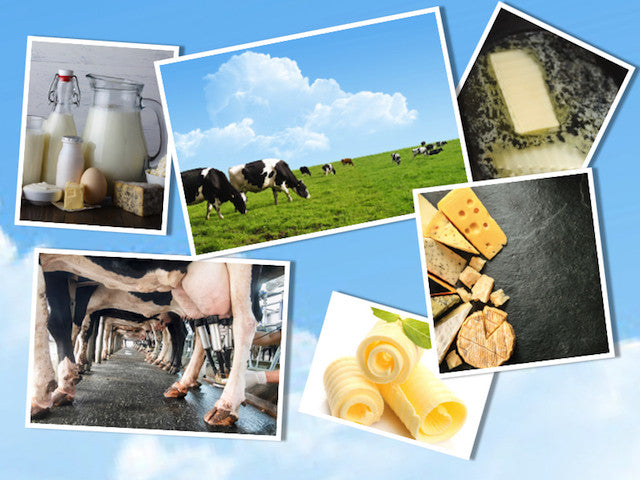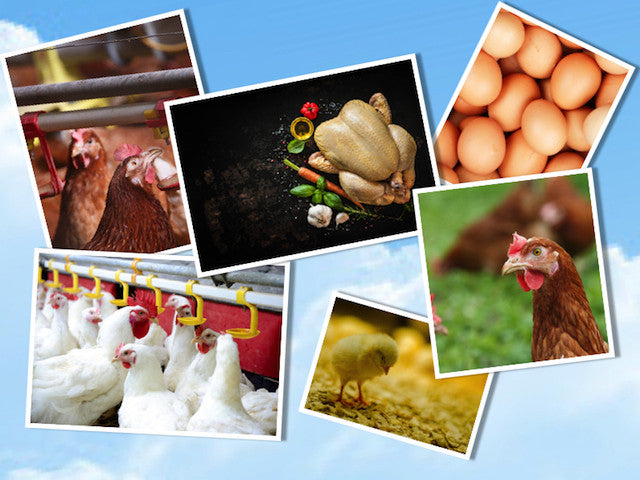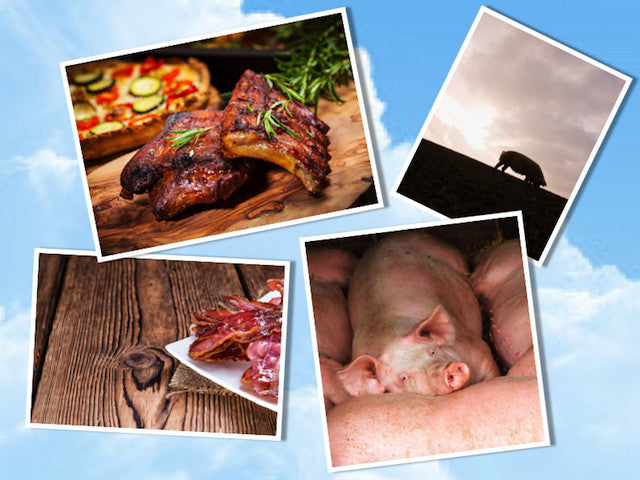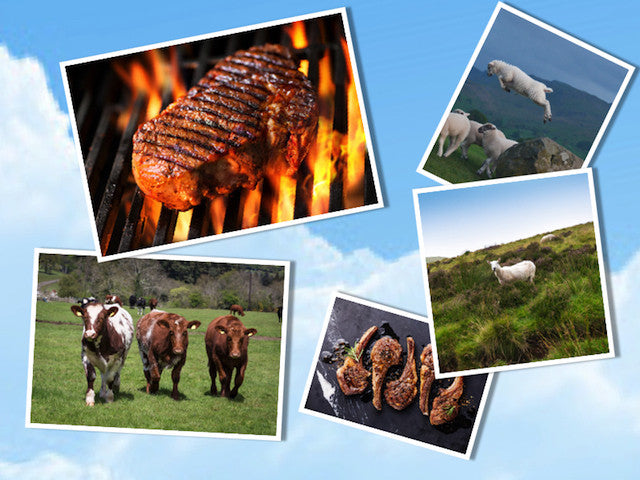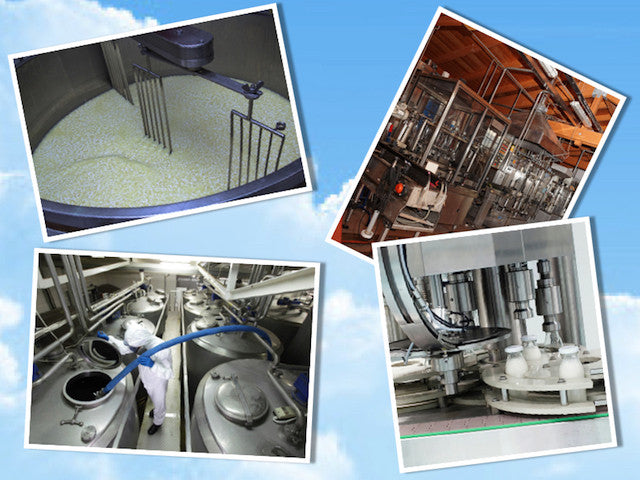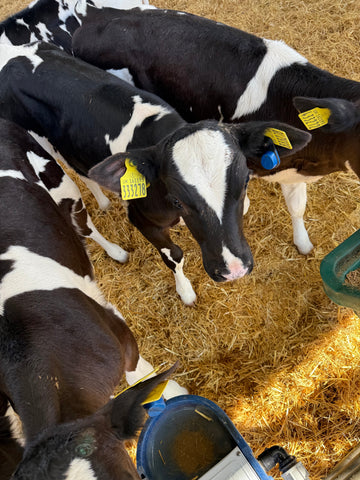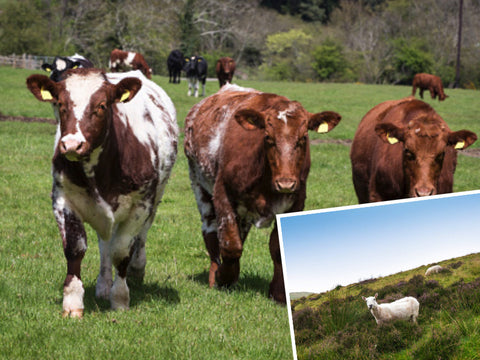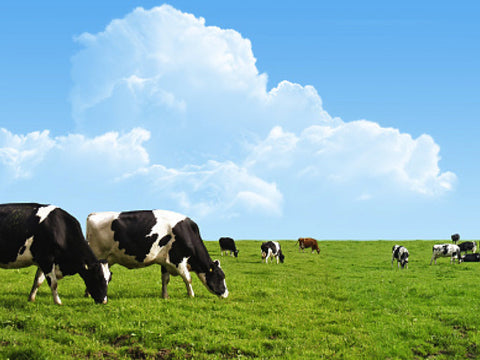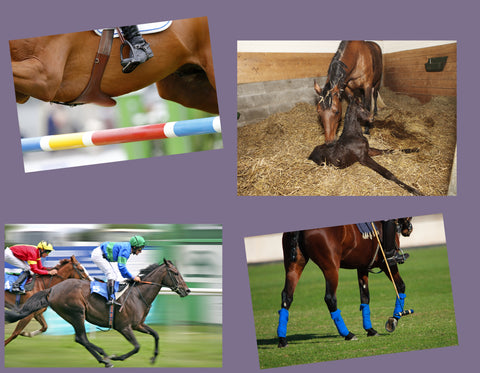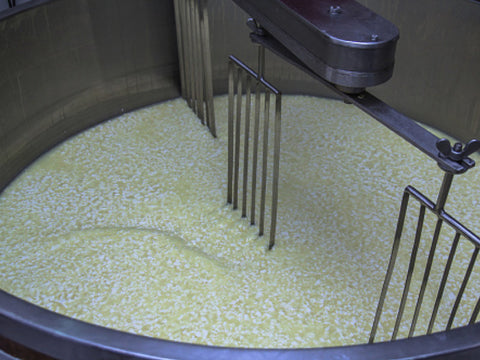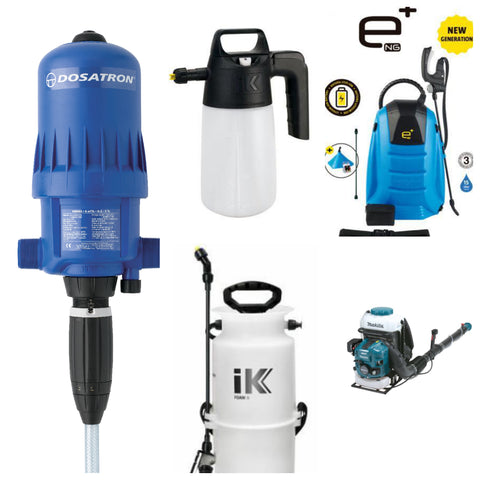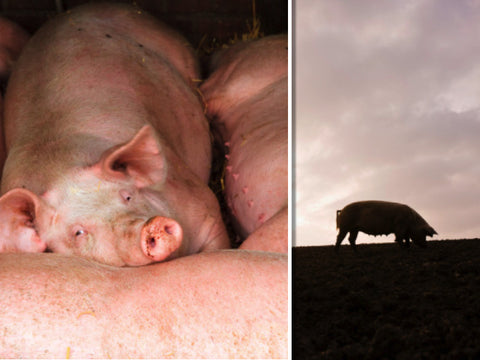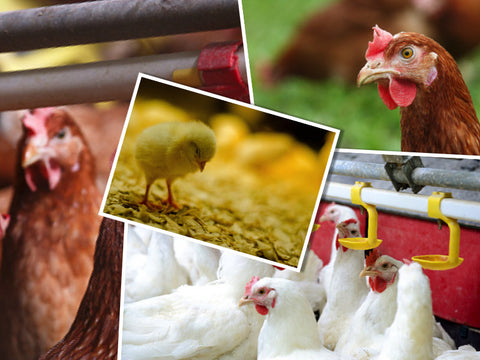1. Introduction Neonatal calf diarrhoea (“calf scour”) remains one of the leading causes of morbidity, mortality and antibiotic use in dairy and beef youngstock systems worldwide (Animal Health Ireland 2021; Trotz-Williams et al. 2007). Scour is not a single disease, but a clinical outcome resulting from disruption of...
Main menu
View all Collections →About us
Pruex - Our Vision.
There are many types of bacteria present on planet earth. Of the ones we know about, the majority are harmless, some beneficial to health, but others exist that can cause disease in animals including us humans. Since the 1950’s, our medical and veterinary professionals have used antibiotic, biocidal (disinfectant), and antiseptic products to control these harmful types. But, these disease causing bacteria are developing resistance to these products. This is known as antimicrobial resistance (AMR), and is a major cause for concern globally. Disease pandemics are known to damage social and economic infrastructure. A viral pandemic could weaken peoples’ immune systems to a point that the patient has no defence against virulent pathogenic bacteria that can’t be controlled by biocides in our hospitals, and that can no longer be controlled within the patient by treatment with antibiotics, due to AMR. Pruex aims to inspire change in our strategy and lead the fight against AMR using what nature has taught us.

In nature, there is a balance of bacterial types, regulated by the way each colony jostles and competes for dominance. There is never a void, there is always bacteria. Humans and animals don’t live in sterile environments. The balance is maintained as healthy when there are more harmless bacteria than there are harmful types. If all types are removed, via heat, or chemical action, for example by disinfection, then a race to repopulate the void ensues. If the race is won by the harmful bacteria, then the risk of animals contracting disease increases. Soil is dominated by harmless bacteria, whereas faeces is dominated by harmful types. In nature, animals are surrounded by soil, and as long as they don’t contaminate their water, bedding or air with faecal bacteria, their risk of contracting bacterial disease is limited.
Pruex apply a one health approach to reduce the threat of AMR globally, working to help professionals in human and animal health sectors do all they can to ensure the good types of bacteria win.

Human misuse of antibiotics and disinfectant is driving the threat of AMR, but press coverage seems to point the blame at veterinary use in agriculture. To succeed in our aim of reducing the risk of AMR, humans can’t divide opinion and concentrate blame on one section of our social and economic infrastructure over another. We have to work as a team and target all areas of concern collectively. A one health approach.

In hospitals, “super bugs” are very problematic. People with no infections catching bacterial disease whilst in hospital. The infections caused by bacteria that are either resistant to disinfection, or that can survive disinfection by being protected in a biofilm, a nest of slime that disinfection can’t totally eradicate from surfaces. From their nest of slime, they quickly win the race to repopulate the void generated by the cleaning process. Biofilm also pose a health problem in our homes, offices, recreational establishments and schools. If soil isn’t dominant, good types of bacteria are not dominant, and a biofilm exists. The infective types of bacteria win the race over the good types. Pruex provide good bacteria in cleaning products that remove biofilm without creating a void and reduce the risk of infective bacteria making people sick. If they’re not infected, they don’t need antibiotics. This reduces the risk of infective bacteria becoming resistant to disinfection and antibiotics.

The immune system has a role to play, for humans and animals alike. Age, stress levels, genetics, diet, exercise, air quality, temperature, humidity, water quality, mental health and wellbeing are all variables that can influence the effectiveness of the immune system in defending people and animals against infections. The role of colostrum in mammals or yolk in birds in ensuring passive immunity from mother to offspring can also determine the strength of the immune system. Pruex apply a two fold strategy to disease prevention, using non infective bacteria to ensure less risk of environmental infections, and dietary products to work with the immune system from within. Protecting from outside and inside the body.

Bacterial infections in our food production systems are problematic, reducing efficiencies, and adding costs to production. Sick animals don’t grow well. Post the second world war, the need for low cost food saw an intensification of agriculture to prevent starvation of human populations. As a result, animals have been kept in large numbers. So water systems have been developed to pipe water to animals. Biofilm is a major problem within these water systems. The tools used by veterinarians to limit the effect of infections have been antibiotics, disinfectants and antiseptics, but the threat of AMR requires a new strategy. Pruex provide dietary products to work from within the animals’ body and good bacteria in cleaning products for surfaces and water systems to remove biofilm without creating a void. This strategy reduces the risk of infective bacteria in the animals’ water and bedding infecting animals and generates lower levels of ammonia and carbon dioxide. Farmers and pet owners alike work with Pruex to ensure a dry bed, clean air and water for their animals, reducing the risk of infection. If the animals aren’t infected, they don’t need antibiotics. This reduces the risk of infective bacteria becoming resistant to disinfection and antibiotics. Consumers can be confident that animals reared in a Pruex barn are healthier.
Pruex aims to lead the global fight against AMR and environmental pollution. Please work with us.
More:
prudent as opposed to excessive use of antibiotics
Welcome to the Pruex website. The company was formed in October 2016 by Aled Rhys Davies. Pruex aims to help lead the fight back against Anti-Microbial Resistance (AMR) and environmental pollution.
Pruex work with:
- Farmers, regardless of species of animal farmed, to develop evidence based strategies on their farms to enable them to develop and demonstrate to consumers their prudent as opposed to excessive use of antibiotics.
- Consumers to enable prudent as opposed to excessive antibiotic use, by limiting the opportunities for infections to take hold and reduce infection pressure.
Aled Rhys Davies, Personal Information:
Raised on a beef and sheep farm in West Wales, Aled has over twenty years’ experience working in a sales and marketing capacity, predominantly within agriculture. Having gained a degree in food marketing at Harper Adams Agricultural College, he studied to gain a professional qualification in strategic marketing whilst embarking on a career in sales. In November 2014, he was awarded a two year Nuffield Farming Scholarship to study and report on the topic: "Alternatives to Antibiotics in Agriculture". The Nuffield Farming Scholarships Trust h as the aim of - Leading positive change in agriculture, inspiring passion and potential in people. Nuffield in the UK award around twenty individuals each year with the opportunity to research topics of interest in farming, food, horticulture or rural sectors. Scholars are able to travel anywhere in the world, visiting one or more countries in order to further knowledge and understanding, with a view to advancing their respective industries. Nuffield Scholarships are awarded internationally in the UK, Australia, Canada, France, Ireland, Netherlands, New Zealand and Zimbabwe, with both Brazil and the USA holding associations with the organisation.
as the aim of - Leading positive change in agriculture, inspiring passion and potential in people. Nuffield in the UK award around twenty individuals each year with the opportunity to research topics of interest in farming, food, horticulture or rural sectors. Scholars are able to travel anywhere in the world, visiting one or more countries in order to further knowledge and understanding, with a view to advancing their respective industries. Nuffield Scholarships are awarded internationally in the UK, Australia, Canada, France, Ireland, Netherlands, New Zealand and Zimbabwe, with both Brazil and the USA holding associations with the organisation.
During his study, Aled travelled to Germany, Norway, France, Sweden, New Zealand, Australia, America and Canada. He found that:
- Agriculture has a great opportunity to lead to process of limiting antimicrobial resistance through individual farming businesses developing evidence based strategies to ensure prudent use of antibiotics.
- Farming businesses, large and small, communicating with consumers the way in which they ensures prudent use of antibiotics in order to limit antimicrobial resistance will prosper.
- Commercial companies offering hygiene and nutritional services with the aim of limiting the introduction of disease and reduce infection pressure on livestock will become the alternatives to antibiotics in agriculture, by enabling farming businesses to develop and demonstrate prudent use of antibiotics.
- Failure to demonstrate evidence based prudent use of antibiotics by the agricultural sector will result in the threat of new antibiotics being reserved for human use and restricted from agricultural use.
Aled's recommendations published in his Nuffield report were:
- Farmers should focus on limiting the introduction of infection and reduce infection pressure by:
- Identifying quickly what is causing an infection
- Treat the ones that have a bacterial infection and that can be treated effectively with antibiotics quickly ensuring correct dosage.
- Cull the and dispose efficiently of the animals that have resistant bacterial infections.
- Ease the pain of the ones that have bacterial infections that can't have an antibiotic with anti-inflammatories, and hydration.
- Supplement the non-cull, infected animals with stimulants to help their immune function.
- Hydrate the animals that have viruses.
- Ensure the water they allow their livestock to drink is at least as clean as the water they drink themselves.
- Analyse their data to determine the cause of infection.
- Develop strategies to prevent similar infections going forward.
- Record the estimated microbial loading of their livestock.
- Record the estimated intensity of attack on the immune system.
- Use their data to build hygiene and husbandry protocols to prevent disease on their farms.
- Tell consumers how their achieving their improvements/maintaining good practice.
- Allow consumers to reward them with custom.
We asked Aled: Why start a company like Pruex?
In 1950 Alistair James Hicks, father of five children and the main income provider working in Cross hands colliery, West Wales, as  a fireman, got a cut on his hand infected by a bacteria called Leptospira, from dirty water. He developed Weil’s disease and died of his infection within 48 hours. His family were plunged into relative poverty. Gloria, his youngest daughter, and the only one still living at home, in addition to her education, started work from then on, cleaning, along with her mother, Pisgah School, in Penybanc, Ammanford, where her mother was the caretaker and dinner lady. Whilst the pay was insignificant, it was regular, and contributed towards providing food for the family unit. Penicillin could have saved Alistair Hicks’ life. It soon became available for administration by doctors.
a fireman, got a cut on his hand infected by a bacteria called Leptospira, from dirty water. He developed Weil’s disease and died of his infection within 48 hours. His family were plunged into relative poverty. Gloria, his youngest daughter, and the only one still living at home, in addition to her education, started work from then on, cleaning, along with her mother, Pisgah School, in Penybanc, Ammanford, where her mother was the caretaker and dinner lady. Whilst the pay was insignificant, it was regular, and contributed towards providing food for the family unit. Penicillin could have saved Alistair Hicks’ life. It soon became available for administration by doctors.
I’m allergic to Penicillin. Alistair Hicks was my grandfather. In two generations, I’ve lost  the use of this life saving antibiotic. I’m not resistant to penicillin, I’m allergic to it. Nevertheless, I can’t use it to help me fight bacterial infections. A return to a pre-antibiotic era, personally scares me, possibly more than others as the remnants and consequences of that era exist within the living memory of my closest family. Gloria, my mother prevailed, and with John, my father, they educated both of my brothers and I, and we are all grateful to them for doing so.
the use of this life saving antibiotic. I’m not resistant to penicillin, I’m allergic to it. Nevertheless, I can’t use it to help me fight bacterial infections. A return to a pre-antibiotic era, personally scares me, possibly more than others as the remnants and consequences of that era exist within the living memory of my closest family. Gloria, my mother prevailed, and with John, my father, they educated both of my brothers and I, and we are all grateful to them for doing so.
My intent in conducting the Nuffield farming scholarship was to examining what alternatives to antibiotics exist for use by farmers assuming that the problem currently developing with regards to anti-microbial resistance will inevitably restrict the use of antibiotics in food production. By conducting the study, I wanted to help secure the future viability of agriculture in the area I live.
A matter of weeks into my research I realised how naïve with regard to the subject matter I actually was. As a young man, due to being allergic to penicillin I restricted as much as possible from taking any other type of antibiotic when unwell. I assumed that one day I might need these antibiotics to really work for me, but I was wrong to think that way. I learnt the errors of my way whilst at the world health summit in Uppsala, Sweden, looking at anti-microbial resistance. Having tried in vain for several weeks to secure my right to attend, I got accepted. I think I “winged it” as an Ugandan delegate, who knows? The quota of delegates from the UK was filled with pre-eminent doctors, vets and academics. My Ugandan counterparts were mainly chemists. They told me that they could sell the latest antibiotic without prescription to any person. They explained the problem further. When ill, a person, if they could afford to do so, would buy a course of antibiotics. As soon as they felt better, they would stop taking the antibiotics themselves, and share the remaining ones out with other family members. By doing so, they are potentially accelerating the speed of anti-microbial resistance to the said drug of choice. I realised that any member of that family carrying resistant bacteria are only one flight away from Europe. It isn’t them that are resistant to antibiotics but the bacteria they carry. I realised that whether I had taken antibiotics in the past or not, if I was to get infected by resistant bacteria, no antibiotic would help me. I also realised that this issue was greater than agriculture, that there is a socio economic factor to the whole arena. Whilst poverty and poor education prevail, in my opinion, we generate breeding grounds for anti-microbial resistance.
For my study, I had decided to look at a multitude of species including ruminants, monogastric’s and fish. Whilst at first I thought I had bitten off more than I could chew, I’m glad to have pushed on in a stubborn manner to look at good practice in each sector. I've gained a real vision as to the issues per species, and have been able to compare and contrast.
Nuffield 15’s contemporary scholars’ conference was held in Reams, France. One of the most fascinating aspects of the weeks’ activities was the study of the production of champagne. A masterclass in adding value, I found myself reassessing my ideas on brand management. The train of thought that followed influenced my study and has led me to believe that the global issues of anti-microbial resistance are the biggest opportunity for livestock farmers of all species in my lifetime.
Farmers can lead the fight back against infective bacterial resistance to antibiotics. Whilst these life forms are some of the oldest inhabitants of our planet, prudent antibiotic use in agriculture can be achieved to limit Anti-Microbial Resistance from agriculture. Farming can lead consumers and governments to limit anti-microbial resistance. I therefore established Pruex to educate and offer a means of developing evidence based strategies that allow consumers and farmers alike to use antibiotics prudently as a means to limit AMR.
Pruex helps farmers find the source of infections on farm and help them change hygiene and husbandry strategies to limit the introduction of infection and reduce infection pressure.
Pruex helps consumers to limit the introduction of infection and reduce infection pressure.
Link: Find out more about Nuffield
Link: View Aled's Nuffield Presentation
Link:See Aled's report - "Alternatives to Antibiotics in Agriculture"( It takes a while to load)
Link: Find out more about bacteria. Look at the National Geographic video, second down the page.

